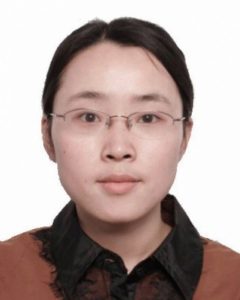Read Jiangjiexing’s Emerging Investigator Series article, “Glutathione peroxidase-like nanozymes: mechanism, classification, and bioapplication“, DOI: 10.1039/D2BM01915A.
Check out our interview with her below:
How do you feel about Biomaterials Science as a place to publish research on this topic?
In my opinion, Biomaterials Science is the ideal journal to publish this topic. It is not necessary to report a new biomaterial, but rather to provide novel insight, resulting in novel and more in-depth mechanisms, and thus advancing biomaterial development.
What aspect of your work are you most excited about at the moment and what do you find most challenging about your research?
There is nothing more exciting than watching this field develop rapidly, and more and more researchers are beginning to pay attention and work in it, as well as expanding the treatment to meet various medical needs. The most challenging part is also the biomedical applications. In what ways can these research be used as part of clinical therapy and as a means of advancing world health.
In your opinion, what are the most important questions to be asked/answered in this field of research?
It is important to ask how these studies can be useful for clinical therapy, in other words, can at least one skilled application be derived from these studies for clinical therapy?
Can you share one piece of career-related advice or wisdom with other early career scientists?
Make sure you retain an open mind about scientific research as well as an enthusiasm and curiosity about it.











